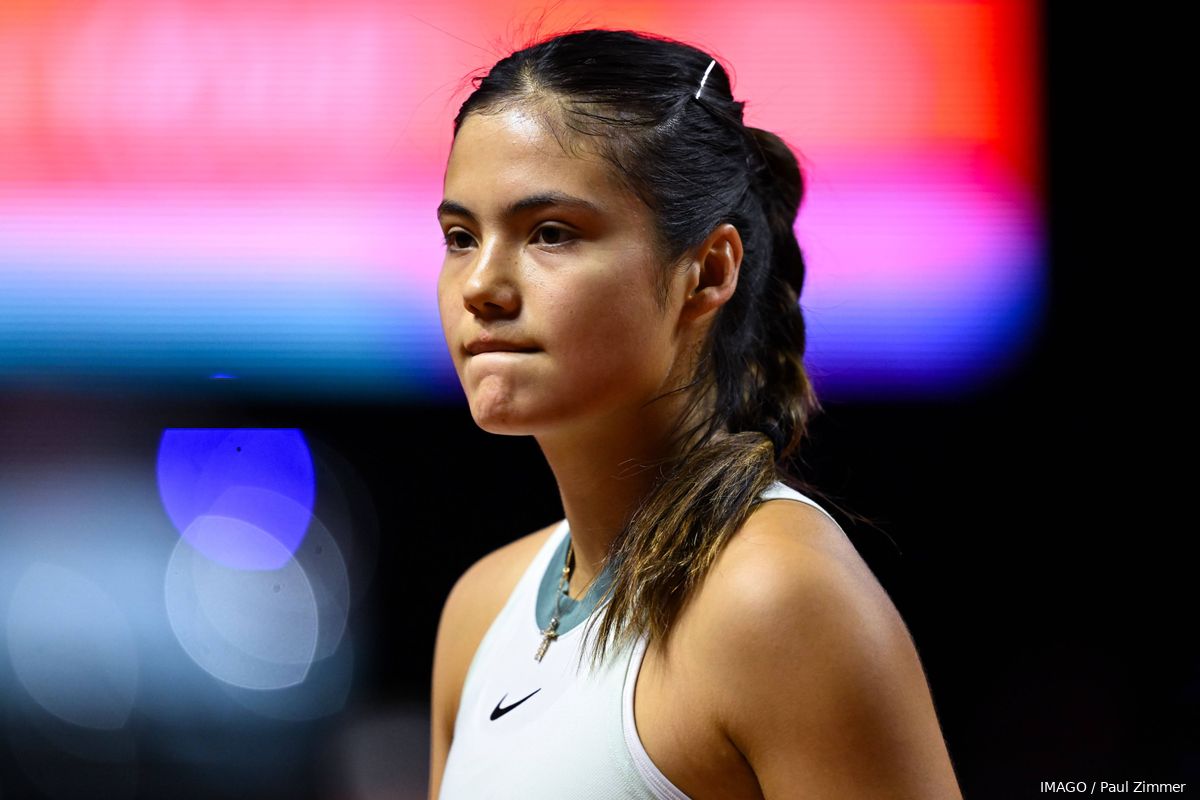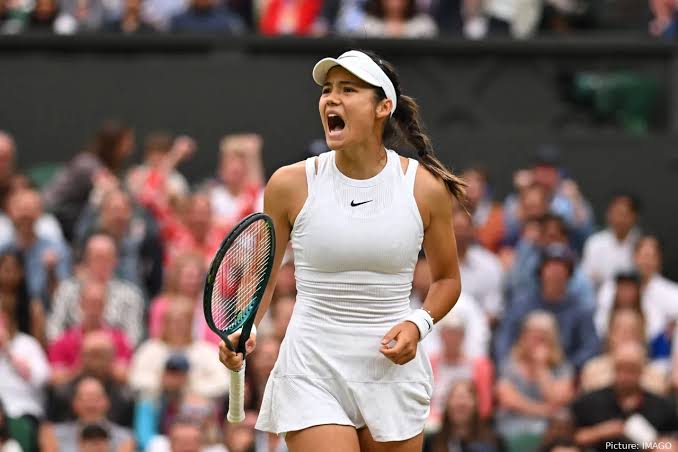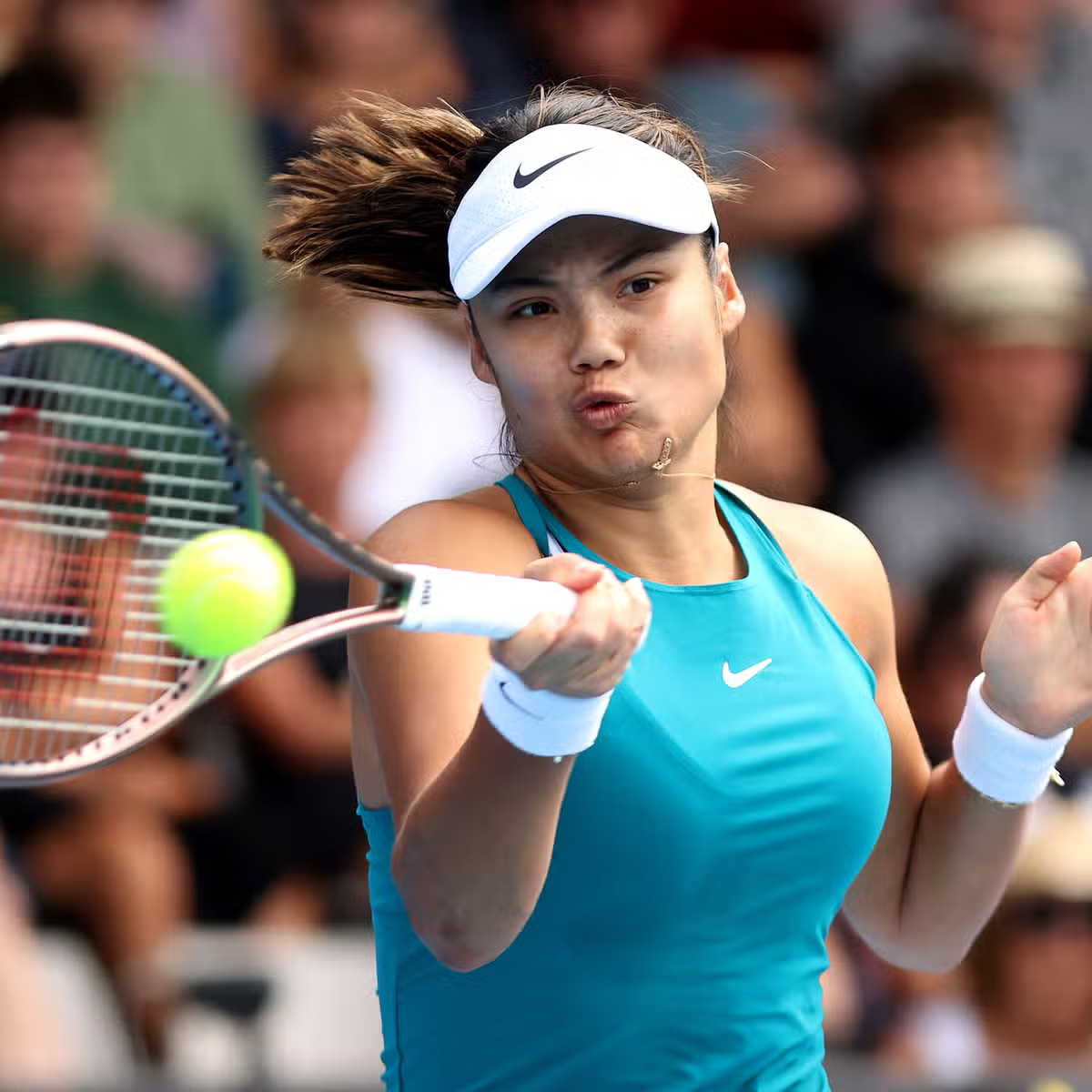Emma Raducanu is no longer simply competing for titles—she’s now fighting for control.

Emma Raducanu, the tennis sensation who took the world by storm with her
incredible US Open victory in 2021, is making waves once again—but this time,
it’s not on the court. Her latest move signals a dramatic shift in how she
intends to engage with the media, particularly the British press. Known for her
poised demeanor and seemingly flawless public image, Raducanu’s decision to
take a step back from the media spotlight has drawn attention and speculation.
Could this be the beginning of a new phase in her career, one where she takes
more control over her narrative?
For the past few years, Raducanu has been thrust into the limelight, becoming
not just a tennis star, but a global media darling. Her meteoric rise from
qualifying rounds to becoming the US Open champion was unprecedented.
Yet, with this fame came a relentless media gaze, particularly from the British
press, which has been both admiring and critical at various points in her
career.
In the aftermath of her grand slam victory, Raducanu’s every move was
analyzed in minute detail. While many celebrated her success and the positive
attention she brought to British tennis, others seemed eager to scrutinize her
every decision—from her on-court performance to her off-court activities.
Critics questioned her dedication, her fitness, and her ability to handle the
pressures of stardom. The press was quick to label her a ‘one-hit wonder’ when
her results didn’t immediately match the high expectations placed upon her.
The intense focus, coupled with media narratives that ranged from supportive
to skeptical, led to Raducanu’s decision to reevaluate her relationship with the
press.
In a world where athletes are often reduced to headlines and soundbites,
Raducanu’s latest move seems to signal a desire for more control over her
personal and professional narrative. Recently, the 21-year-old made a
conscious decision to limit her interactions with the British press. She has
reportedly become more selective in the interviews she gives and has turned
down media requests, opting instead to focus on her tennis career and
personal growth. This shift, while not entirely unexpected, marks a strategic
pivot in how Raducanu wishes to shape her public image moving forward.
What’s particularly noteworthy about Raducanu’s decision is how it reflects the
increasing awareness of the pressures athletes face in the media spotlight.
Tennis players, especially young women like Raducanu, are often caught in the
crossfire of expectations, judgment, and scrutiny. The relentless media cycle,
amplified by social media platforms, can be overwhelming and, at times,
harmful to an athlete’s mental health. Raducanu’s move to step back suggests
that she’s taking her mental and emotional well-being seriously, a sentiment
that has become more prominent among elite athletes in recent years.
Moreover, Raducanu’s decision to limit her interactions with the press could
be seen as a tactical move aimed at resetting her image. For someone who rose
to prominence so quickly, there was little time for her to establish a strong
foundation in the professional world of tennis. By taking a step back,
Raducanu can focus on honing her game, building her career at her own pace,
and reducing external pressures. It’s a strategy that many successful athletes,
including those in other sports, have adopted to maintain their focus and avoid
burnout.
This media strategy also seems to align with the broader trend of athletes
taking control over their personal brands. More and more, we are seeing
athletes diversify their activities outside their sports, using their influence to
create businesses, engage in social causes, and develop more independent,
personalized relationships with their fanbases. By pulling back from the
traditional media cycle, Raducanu may be positioning herself to curate her
image on her terms—through social media, personal interviews, and selected
partnerships.
Another factor in this shift is the increasing role of social media. Platforms like
Instagram, Twitter, and TikTok allow Raducanu to communicate directly with
her audience without the filter of traditional media. Through these channels,
she can shape her narrative and engage with fans on her own terms, bypassing
the sometimes harsh criticism and sensationalism of the British press. With
more athletes moving towards direct-to-fan content, Raducanu’s media
strategy seems to be adapting to the changing digital landscape.
In conclusion, Emma Raducanu’s latest decision to limit her media
engagements and redefine her relationship with the press is a clear indication
that she is taking ownership of her career and her narrative. By stepping away
from the spotlight and focusing on her game and mental health, she is sending
a powerful message about the importance of self-care in the world of elite
sports. As she continues to navigate the pressures of stardom, it will be
interesting to see how this new approach impacts her career and public image
moving forward. One thing is certain: Emma Raducanu is no longer just
playing for trophies—she’s playing for control.



